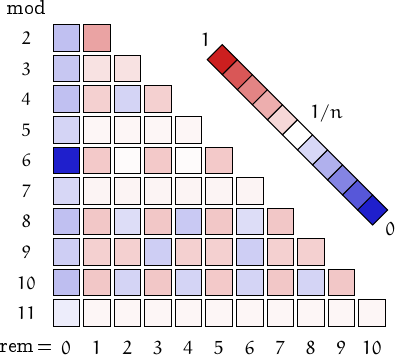The first 600 deficient numbers :
1, 2, 3, 4, 5, 7, 8, 9, 10, 11, 13, 14, 15, 16, 17, 19, 21, 22, 23, 25, 26, 27, 29, 31, 32, 33, 34, 35, 37, 38, 39, 41, 43, 44, 45, 46, 47, 49, 50, 51, 52, 53, 55, 57, 58, 59, 61, 62, 63, 64, 65, 67, 68, 69, 71, 73, 74, 75, 76, 77, 79, 81, 82, 83, 85, 86, 87, 89, 91, 92, 93, 94, 95, 97, 98, 99, 101, 103, 105, 106, 107, 109, 110, 111, 113, 115, 116, 117, 118, 119, 121, 122, 123, 124, 125, 127, 128, 129, 130, 131, 133, 134, 135, 136, 137, 139, 141, 142, 143, 145, 146, 147, 148, 149, 151, 152, 153, 154, 155, 157, 158, 159, 161, 163, 164, 165, 166, 167, 169, 170, 171, 172, 173, 175, 177, 178, 179, 181, 182, 183, 184, 185, 187, 188, 189, 190, 191, 193, 194, 195, 197, 199, 201, 202, 203, 205, 206, 207, 209, 211, 212, 213, 214, 215, 217, 218, 219, 221, 223, 225, 226, 227, 229, 230, 231, 232, 233, 235, 236, 237, 238, 239, 241, 242, 243, 244, 245, 247, 248, 249, 250, 251, 253, 254, 255, 256, 257, 259, 261, 262, 263, 265, 266, 267, 268, 269, 271, 273, 274, 275, 277, 278, 279, 281, 283, 284, 285, 286, 287, 289, 290, 291, 292, 293, 295, 296, 297, 298, 299, 301, 302, 303, 305, 307, 309, 310, 311, 313, 314, 315, 316, 317, 319, 321, 322, 323, 325, 326, 327, 328, 329, 331, 332, 333, 334, 335, 337, 338, 339, 341, 343, 344, 345, 346, 347, 349, 351, 353, 355, 356, 357, 358, 359, 361, 362, 363, 365, 367, 369, 370, 371, 373, 374, 375, 376, 377, 379, 381, 382, 383, 385, 386, 387, 388, 389, 391, 393, 394, 395, 397, 398, 399, 401, 403, 404, 405, 406, 407, 409, 410, 411, 412, 413, 415, 417, 418, 419, 421, 422, 423, 424, 425, 427, 428, 429, 430, 431, 433, 434, 435, 436, 437, 439, 441, 442, 443, 445, 446, 447, 449, 451, 452, 453, 454, 455, 457, 458, 459, 461, 463, 465, 466, 467, 469, 470, 471, 472, 473, 475, 477, 478, 479, 481, 482, 483, 484, 485, 487, 488, 489, 491, 493, 494, 495, 497, 499, 501, 502, 503, 505, 506, 507, 508, 509, 511, 512, 513, 514, 515, 517, 518, 519, 521, 523, 524, 525, 526, 527, 529, 530, 531, 533, 535, 536, 537, 538, 539, 541, 542, 543, 545, 547, 548, 549, 551, 553, 554, 555, 556, 557, 559, 561, 562, 563, 565, 566, 567, 568, 569, 571, 573, 574, 575, 577, 578, 579, 581, 583, 584, 585, 586, 587, 589, 590, 591, 592, 593, 595, 596, 597, 598, 599, 601, 602, 603, 604, 605, 607, 609, 610, 611, 613, 614, 615, 617, 619, 621, 622, 623, 625, 626, 627, 628, 629, 631, 632, 633, 634, 635, 637, 638, 639, 641, 643, 645, 646, 647, 649, 651, 652, 653, 655, 656, 657, 658, 659, 661, 662, 663, 664, 665, 667, 668, 669, 670, 671, 673, 674, 675, 676, 677, 679, 681, 682, 683, 685, 686, 687, 688, 689, 691, 692, 693, 694, 695, 697, 698, 699, 701, 703, 705, 706, 707, 709, 710, 711, 712, 713, 715, 716, 717, 718, 719, 721, 722, 723, 724, 725, 727, 729, 730, 731, 733, 734, 735, 737, 739, 741, 742, 743, 745, 746, 747, 749, 751, 752, 753, 754, 755, 757, 758, 759, 761, 763, 764, 765, 766, 767, 769, 771, 772, 773, 775, 776, 777, 778, 779, 781, 782, 783, 785, 787, 788, 789, 790, 791, 793, 794, 795, 796.
Distribution of the remainders when the numbers in this family are divided by n=2, 3,..., 11. (I took into account 7523259 values, from 1 to 9999999).
| n\r | 0 | 1 | |||||||||
|---|---|---|---|---|---|---|---|---|---|---|---|
| 2 | 2543920 | 4979339 | 2 | ||||||||
| 3 | 1646006 | 2938632 | 2938621 | 3 | |||||||
| 4 | 950545 | 2489674 | 1593375 | 2489665 | 4 | ||||||
| 5 | 1242298 | 1570256 | 1570228 | 1570232 | 1570245 | 5 | |||||
| 6 | 0 | 1666667 | 1271955 | 1646006 | 1271965 | 1666666 | 6 | ||||
| 7 | 885249 | 1106312 | 1106333 | 1106334 | 1106339 | 1106335 | 1106357 | 7 | |||
| 8 | 392791 | 1244843 | 796695 | 1244830 | 557754 | 1244831 | 796680 | 1244835 | 8 | ||
| 9 | 539185 | 979531 | 979545 | 553412 | 979533 | 979540 | 553409 | 979568 | 979536 | 9 | |
| 10 | 262669 | 999928 | 570297 | 999924 | 570318 | 979629 | 570328 | 999931 | 570308 | 999927 | 10 |
| 11 | 621829 | 690124 | 690171 | 690142 | 690168 | 690125 | 690154 | 690133 | 690150 | 690137 | 690126 |
A pictorial representation of the table above

Imagine to divide the members of this family by a number n and compute the remainders. Should they be uniformly distributed, each remainder from 0 to n-1 would be obtained in about (1/n)-th of the cases. This outcome is represented by a white square. Reddish (resp. bluish) squares represent remainders which appear more (resp. less) frequently than 1/n.
e-mail: info -at- numbersaplenty.com • Privacy notice • engine limits